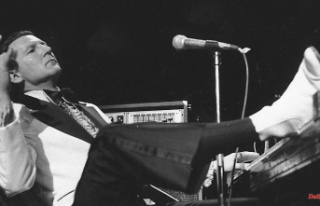Elon Musk says about his Twitter deal that he wants to restore freedom of expression. But his view of free speech is not only contradictory, it is also a threat to democracy.
"The bird is free." With these four words, Elon Musk celebrates the completed Twitter takeover. Once again, the billionaire presents himself as the idealistic liberator of the platform, which he subjects to censorship. His accusation: Twitter is doing too many blocks and deletions based on its own guidelines. According to Musk, such requirements should be governed solely by the law. He himself is an "absolutist of freedom of expression". For him, free speech is the top priority in a "functioning democracy". In fact, his views are deeply undemocratic.
Taking the law as a benchmark may sound rosy at first. However, Twitter is a US company, legal requirements are completely different there than in Europe. The judiciary in the land of opportunity stretches freedom of expression very far. Even racist insults, Holocaust denial or death threats fall under "free speech" as long as such statements are not immediately followed by violence. It's difficult to prove that at all.
It is well known how hate on the internet can act as an accelerator for radicalization and violence in real life. Donald Trump, Musk's spiritual ally when it comes to fighting alleged censorship, was banned from Twitter after the Capitol storm in early 2021. He had incited his followers to violence with repeated false statements about alleged election fraud. Musk announced that he wanted to lift the ban against the ex-president. Meanwhile, Trump has created his own social media parallel world. The medium "Truth Social" ekes out a shadowy existence as an echo chamber for conspiracy ideologies and radical right-wing views.
Platforms like Twitter try to counter such a development through moderation or warnings. This applies, for example, to posts that incite hatred and violence, defame others or spread misinformation. The free speech of the individual should be ensured without violating the freedom of others through devaluation. A balancing act that regularly reaches its limits with almost 240 million daily active users.
Only a more restricted moderation would give hate and hate speech much more space and make a fair debate more difficult. Minorities and the socially disadvantaged get lost in the discourse if they are not protected. A minimum of rules exacerbates this inequality and only empowers people who are already at the top of society. people like Musk.
Alternatively, he wants to introduce a real name requirement. That would be the end for Twitter users reporting in opposition from authoritarian countries - and a loss for free speech and Twitter alike. Nurses could neither report anonymously on their everyday work, nor could teachers spread bizarre schoolyard anecdotes.
It is only surprising that the self-proclaimed champion of freedom of expression suddenly no longer carries the flag so high when he himself is in the spotlight. Tesla employees from California who complained about a racist working atmosphere were fired. SpaceX employees also lost their jobs after they wrote an open letter denouncing the company's inadequate handling of sexual abuse and accusing their boss Musk of harassing a flight attendant.
So it would be more than naïve to say that the richest person in the world is doing it for a good cause if he buys Twitter for $44 billion and apparently takes a seat in the executive chair himself. Because this post means above all power and influence. In the future, Musk will operate the levers of a platform that is indispensable in public discourse. Activists, journalists and politicians use Twitter as an important mouthpiece.
Musk had previously interfered in politics, suggesting a questionable peace plan for Ukraine. He also makes no secret of supporting the Republicans in US politics. On the other hand, he considers the Democrats to be a “party of division and hatred”. He sees freedom of speech threatened primarily by "woken" leftists who would try to "destroy civilization". An opinion Musk can of course have. Should he attempt to transform Twitter on the basis of this one-sided understanding - what it looks like - it would be anything but democratic.
Of course, Musk is right: Freedom of expression is one of the greatest assets of democracy. Authoritarian states like China or Russia show where state conformity and censorship lead. But freedom of expression needs rules. But Musk uses the term to play by his own rules. As the first official act, he has already dismissed the top floor of Twitter. Experts expect that he fills them with people who are well-disposed towards him - and who are themselves at the top. That has nothing to do with democracy. It is therefore questionable how free the bird really is in the future.












